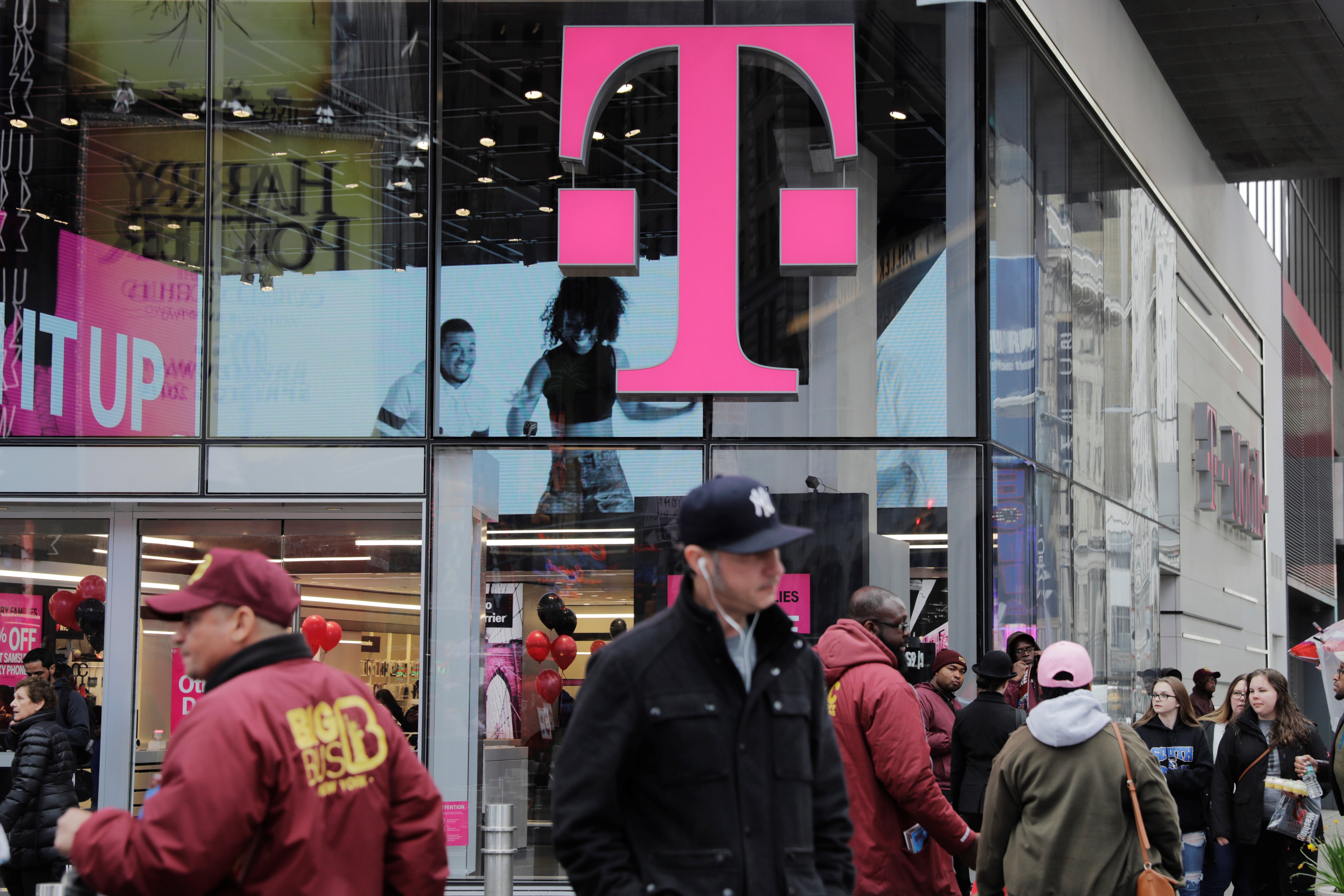Update, April 29, 2018: Sprint and T-Mobile officially announced their intention to merge on Sunday. Original post appears below.
We may be about to find out how well flattering Donald Trump pays off as a business strategy.
CNBC reports today that wireless carriers T-Mobile and Sprint are on the verge of announcing a $26 billion merger, possibly by Sunday. If that news sounds vaguely familiar, it’s because these two companies have been eyeing each other lustily on and off for a long time now. The country’s third and fourth largest mobile companies spent time in merger talks in 2014, but gave up once it became painfully clear the Obama administration, which had previously sued to stop AT&T from buying T-Mobile, would never approve the deal.
This was almost undoubtedly a good thing for customers. T-Mobile has been one of the more innovative and competitive companies in the wireless industry, and its efforts to get customers have forced its bigger rivals to offer better, more generous services. Ever wonder why unlimited data plans made a comeback after going basically extinct? It’s because Verizon, AT&T, T-Mobile, and Sprint are in heated competition, trying to win over each others’ subscribers. The whole industry has basically been a demonstration of the virtues of vigorous antitrust enforcement.
The question now is whether Trump will muck things up. Back in the woozy, post-election days of December 2016, SoftBank CEO Masayoshi Son, the eccentric billionaire whose Japanese conglomerate owns 85 percent of Sprint, made a visit to Trump Tower for a tête-à-tête with the president-elect. Afterward, the pair rode down to the lobby together, where Trump proudly told reporters that “Masa” had promised to invest $50 billion in the U.S. and create 50,000 jobs. Son later clarified that the $50 billion would mostly consist of investments in tech firms through a venture capital fund SoftBank was starting with Saudi Arabia, which almost certainly had nothing to do with Trump’s election. But no matter; it played into the president’s PR blitz to convince people that, like a small-state governor, he was personally making deals to create jobs and investment in the U.S. (Remember the whole Carrier thing?)
It seemed pretty obvious at the time that Son was buttering up Trump with the hope of getting favorable treatment from the administration later. If T-Mobile and Sprint finally try to tie up, we’ll find out if his charm blitz can yield any results. I wouldn’t be too surprised if it does. Ever since Trump took office, the Justice Department’s antitrust enforcement has seemed to have a distinctly political bent. The administration sued to stop the merger between AT&T and Time Warner, a deal that under past presidents would likely have gotten a green light because the two aren’t direct competitors. Many observers assume, the move had something to do with Trump’s hatred of Time Warner-owned CNN, though that hasn’t been reported conclusively. Meanwhile, as Recode notes, regulators seem to have no problem with Disney’s pending acquisition of Rupert Murdoch’s 21st Century Fox. Being friendly with Trump appears to pay these days.
